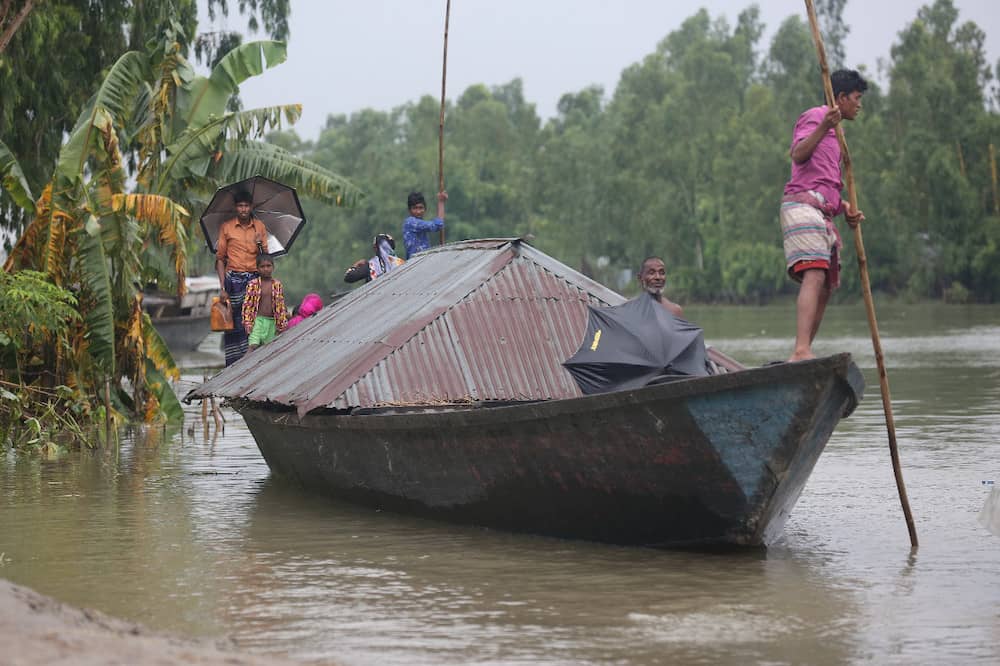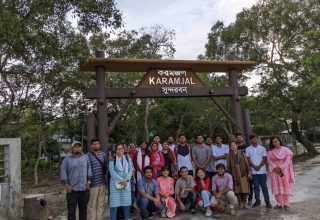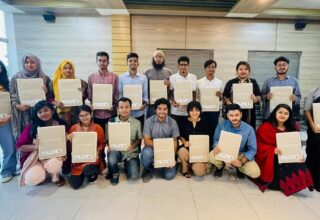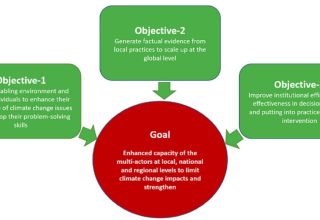
Youth can be recognized as resources and competent citizens in their own right, rather than as problematic or passive recipients of services. In adult-dominated processes, tokenistic treatment of a few youth members fails to recognize youth as assets with meaningful contributions to offer. Providing young people with significant opportunities to engage in decision-making processes, on the other hand, fulfils their right to be included in collective decision making. When young people are given the opportunity to exercise their rights and responsibilities as citizens in a democratic society, they develop personal and social competencies.
However, through education and practice, young people must be assisted in developing the skills necessary for meaningful engagement. Climate change education and capacity building, especially for young people, is essential for enhancing people’s ability to solve environmental and developmental concerns associated with climate change. Because the climate is rapidly changing, the youth are required as change makers or instruments for climate action. Climate change exacerbates young people’s existing vulnerabilities.
One of the best ways of realizing the youth’s involvement on a national scale, we only need to look at it during a natural disaster. The youth’s role in tackling climate natural disasters is irrevocably present; volunteerism is one of the major aspects that pertain to the youth. Climate-related disasters are beginning to overwhelm adaptation efforts in Bangladesh’s coastal region. The country has gone to great lengths to adapt and limit the possibility of calamity. Over the last few decades, its Cyclone Preparedness Programme, has drastically reduced disaster mortality. Disaster preparatory organizations have realized this and put emphasis on capacitating the youth in recognizing and assessing early incoming disasters, these training modalities try and empower them as agents of change and advocate better climate disaster preparedness, as it is then these youths that capacitate their local community in understanding early warning systems and what to do during disasters.
Young individuals who took part in various risk management and risk reduction programs showed improved awareness and comprehension of security issues and measures. According to various studies, young people who participate in a variety of activities before, during, and after a disaster or significant incident are better able to deal with the issue practically and mentally. Youths are extremely resilient and may be able to contribute thoughts and activities in an actual emergency if they are involved in disaster planning ahead of time.
By involving the youth in disaster preparedness and recovery efforts, youth-serving organizations can help to increase the youths’ awareness of specific hazards. There are a number of roles that the youths can play during any kind of disaster. The youth can assist in disseminating information about disaster preparedness. The youth can be change-makers by sharing what they’ve learned in youth preparedness programs and assisting parents and communities in disaster preparations, such as by developing a disaster plan. The youth can contribute innovative and resourceful disaster preparedness ideas.
While there is a growing interest in youth engagement, there are numerous obstacles to their genuine inclusion in practice. In the sense that young people are frequently included in one-time discussions that have a limited impact on policy decisions, youth engagement is frequently superficial. The refusal of adults to share opportunities with the youth due to the assumption that the youth are not capable, and responsible partners are the fundamental barriers to meaningful youth participation in adult-led organisations and institutions. The chance to develop young people with the skills to participate effectively, rather than waiting until they are adults, is forfeited when the youth are not suitably enabled and engaged. One of the major ways this issue can be alleviated is through active engagements in capacity and networking events.
Networking is one of the aspects that usually go underappreciated; being able to attach the youth to international conferences and as well as making sure that there are ample opportunities to become part of international consortiums leads to the youth’s capacity building as well as their voices being heard. One of the best ways we can see this is through the active youth engagement that is seen at the Gobeshona Global Conference, where the conference tries to bridge the gap that persists between the youth, the climate change experts, and practitioners. This sort of bridging can be seen as an enriching process that is beneficial for both the youth as well as the experts, as the youth get to garner knowledge straight from experts and the experts are able to hear and understand the youth’s perspective. The youths were able to share their perspectives on the effects of climate change during the conference. They also addressed diverse underlying climate change issues and proposed solutions from their fresh perspectives. Engaging and capacitating the youths through a platform can mobilize their capacity to build a sustainable nation.
The youths should be encouraged to share their opinions and ideas, as well as to motivate other young people to work together to better social situations. They must also be at the forefront of efforts to promote social and economic progress and justice in order to fully enjoy their human rights.
Originally this article was published on August 04, 2022 at Dhaka Tribune.
Kazi Taiba Bari Nowsheen is working at the International Centre for Climate Change and Development (ICCCAD) as a research intern, her research interest lies in Climate Change and DRR. Can be reached at nowsheenbari@gmail.com.
Shohail Bin Saifullah is working as Youth Coordinator at International Centre for climate change and Development (ICCCAD). He can be reached- shohail.saifullah@icccad.org.







